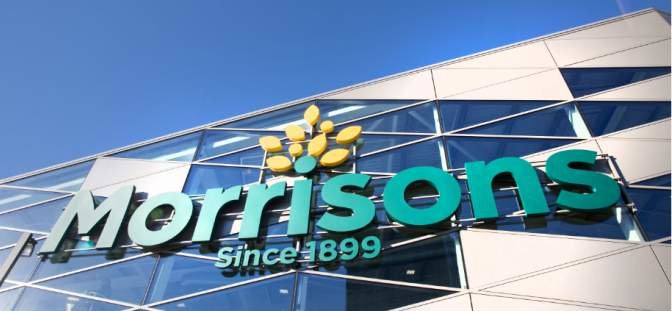
WM Morrison Supermarkets PLC’s petrol station estate may be playing a key part in a potential takeover by US private equity firm Clayton, Dubilier & Rice.
The FTSE 250 group has rejected the unsolicited £5.5bn bid but the market is expecting it to relaunch with a higher bid, while it’s not excluded that Amazon may table its own proposal as well. CD&R is already present in Britain with MFG, the leading UK forecourt operator with over 900 locations.
The situation presents many parallels with the recent acquisition of UK grocer Asda by the Issa brothers, owners of forecourt operator EG Group, as there is similar freehold property value extraction and potential synergies in the petrol stations segment.
With BP and Shell investing heavily in refuelling stations as part of Britain's and the wider global electric vehicle charging shift, Morrisons and MFG could tap into a huge market, offering customers the option to do their grocery shopping while charging their cars.
The timing of the takeover offer is also interesting, according to analysts at Berenberg, as it comes just three days after the Issa brothers gained approval from the UK’s Competition and Markets Authority (CMA) for its acquisition of Asda, with EG Group only having to sell 27 forecourts to satisfy competition concerns.
“If an offer for Morrisons was hypothetically agreed, we expect that the CMA’s frame of reference would consist of two primary components: retail supply of fuel and convenience store groceries.
We would expect a similar outcome to the CMA’s findings in the Asda deal, where the competition concern related to the fuel business,” analysts noted.
The combined footprint of Morrisons and MFG would face more scrutiny as it would have 1,200 sites, compared to 660 of Asda and EG Group.
The potential synergies of forecourts look like a key rationale in CD&R’s offer, said Berenberg, alongside the supermarket’s strong balance sheet and 87% freehold ownership in the estate.
Conversely, JP Morgan said the strategic and financial rationale behind this deal “does not seem obvious” and the appeal of a strong balance sheet and management team seems “overstated”.
“We continue to struggle to see the path for Morrisons to unlock value via execution,” the US investment bank said.
“As it was the case with Asda, a potential change of Morrisons owner would not solve the challenges of the industry nor those of the company outright.” The stock has been trading somewhat underwhelmingly despite huge demand during the pandemic, as COVID-19 restrictions resulted in higher safety costs while the market remains hypercompetitive.